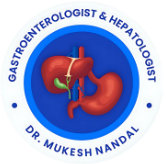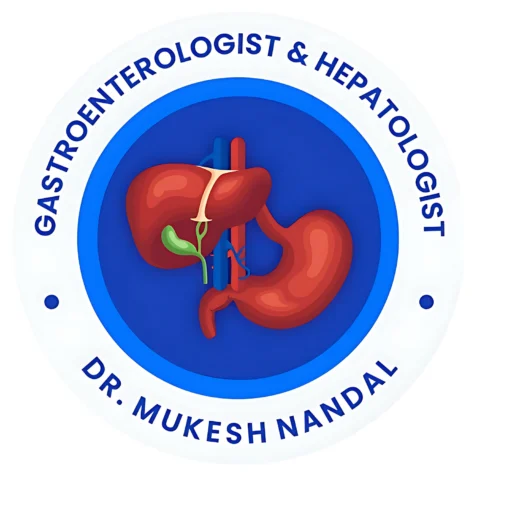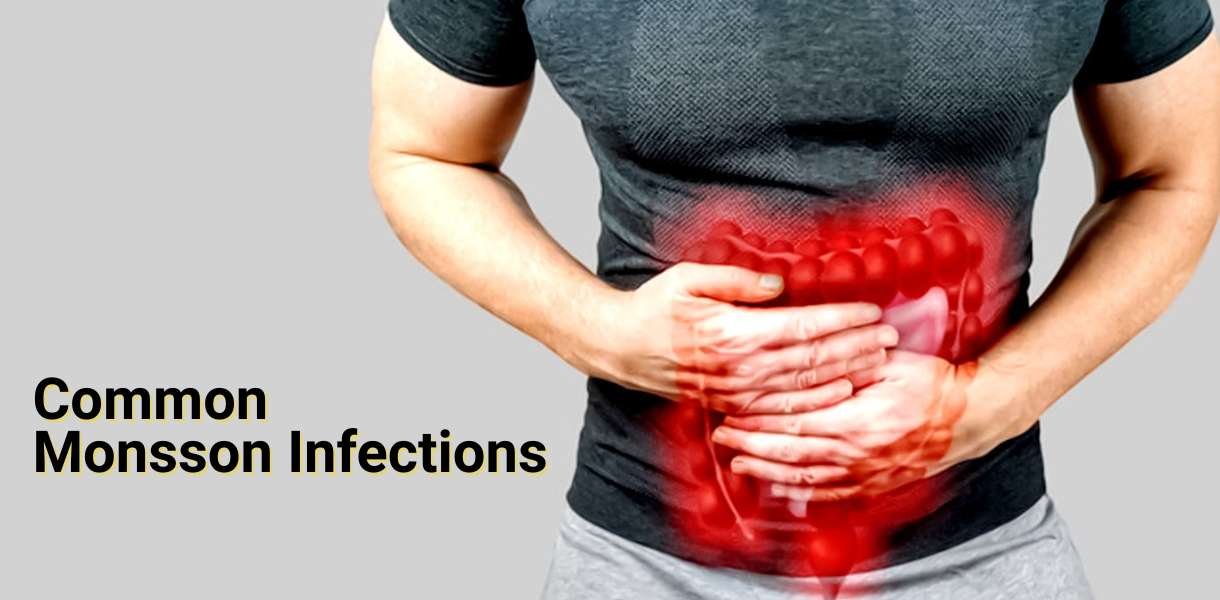Common Monsoon Infections: Understanding Acute Gastroenteritis
Monsoon is a season most people eagerly wait for – the cool breeze, rainy evenings, and greenery all around. But along with its beauty, monsoon also brings an increased risk of water-borne and viral infections. One of the most common and troublesome among them is Acute Gastroenteritis. This condition not only disrupts your daily routine but can also become severe if left untreated.
Featuring insights from Dr. Mukesh Nandal, Senior Consultant – Gastroenterology, this blog will help you understand the causes, symptoms, and home remedies for acute gastroenteritis, along with an overview of other related monsoon infections like acute viral hepatitis.
What is Acute Gastroenteritis?
Acute Gastroenteritis is an infection and inflammation of the stomach and intestines, often triggered by contaminated food, water, or exposure to harmful viruses and bacteria. It is a common seasonal illness during monsoons, as the humid conditions favor the growth and spread of microbes.
Causes of Acute Gastroenteritis
Several factors contribute to this condition, particularly during the rainy season:
- Contaminated Food and Water: Consuming unhygienic street food, stale meals, or drinking unfiltered water is the leading cause.
- Viral Infections: Rotavirus and Norovirus are common culprits.
- Bacterial Infections: Salmonella, Shigella, and E. coli infections increase in the monsoon.
- Poor Hand Hygiene: Touching food without washing hands properly helps pathogens spread quickly.
Symptoms to Watch Out For
Acute gastroenteritis may range from mild discomfort to severe illness. Common symptoms include:
- Loose motions or diarrhea
- Severe abdominal pain and cramping
- Vomiting and nausea
- Fever and weakness
- Dehydration (dry mouth, dizziness, reduced urination)
If these symptoms persist or worsen, it’s important to consult a Gastroenterologist in Gurgaon for timely diagnosis and treatment.
Acute Viral Hepatitis – Another Monsoon Concern
Alongside gastroenteritis, acute viral hepatitis is also commonly reported during monsoons. This infection affects the liver and is usually caused by consuming contaminated food or water. Symptoms include:
- Yellowing of eyes and skin (jaundice)
- Dark urine and pale stools
- Loss of appetite
- Fatigue and abdominal discomfort
While both gastroenteritis and viral hepatitis share some triggers, hepatitis requires more specialized care and longer recovery time.
Read this also: https://drmukeshnandal.com/gut-health-during-monsoon-season/
Home Remedies and Self-Care for Gastroenteritis
For mild cases of acute gastroenteritis, home remedies can provide relief:
- Stay Hydrated – Drink plenty of boiled or filtered water. Oral rehydration solutions (ORS) help replace lost electrolytes.
- Eat Light and Easily Digestible Food – Opt for khichdi, plain rice, curd, or soups. Avoid oily, spicy, and fried food.
- Ginger and Mint – Herbal teas made with ginger or mint may soothe nausea and stomach cramps.
- Bananas and Rice – The BRAT diet (Bananas, Rice, Applesauce, Toast) is gentle on the stomach and helps control loose motions.
- Adequate Rest – Allow your body to recover by getting sufficient rest.
⚠️ When to Seek Medical Help: If diarrhea or vomiting persists beyond 2-3 days, or if there is severe abdominal pain, high fever, or signs of dehydration, consult a qualified Gastroenterologist in Gurgaon immediately.
Preventing Monsoon Infections
Prevention is always better than cure. A few precautions can help you stay healthy during the rainy season:
- Drink only filtered or boiled water.
- Avoid raw, cut fruits sold outside.
- Maintain strict hand hygiene before eating.
- Wash vegetables and fruits thoroughly.
- Eat freshly cooked food.
Conclusion
The monsoon season may increase the risk of infections, but with the right precautions and awareness, conditions like Acute Gastroenteritis and viral hepatitis can be avoided. If you experience persistent symptoms, timely medical advice from an expert gastroenterologist can make all the difference.
Disclaimer
This article is for informational purposes only and should not be taken as medical advice. Always consult a qualified healthcare professional for diagnosis and treatment of medical conditions.


